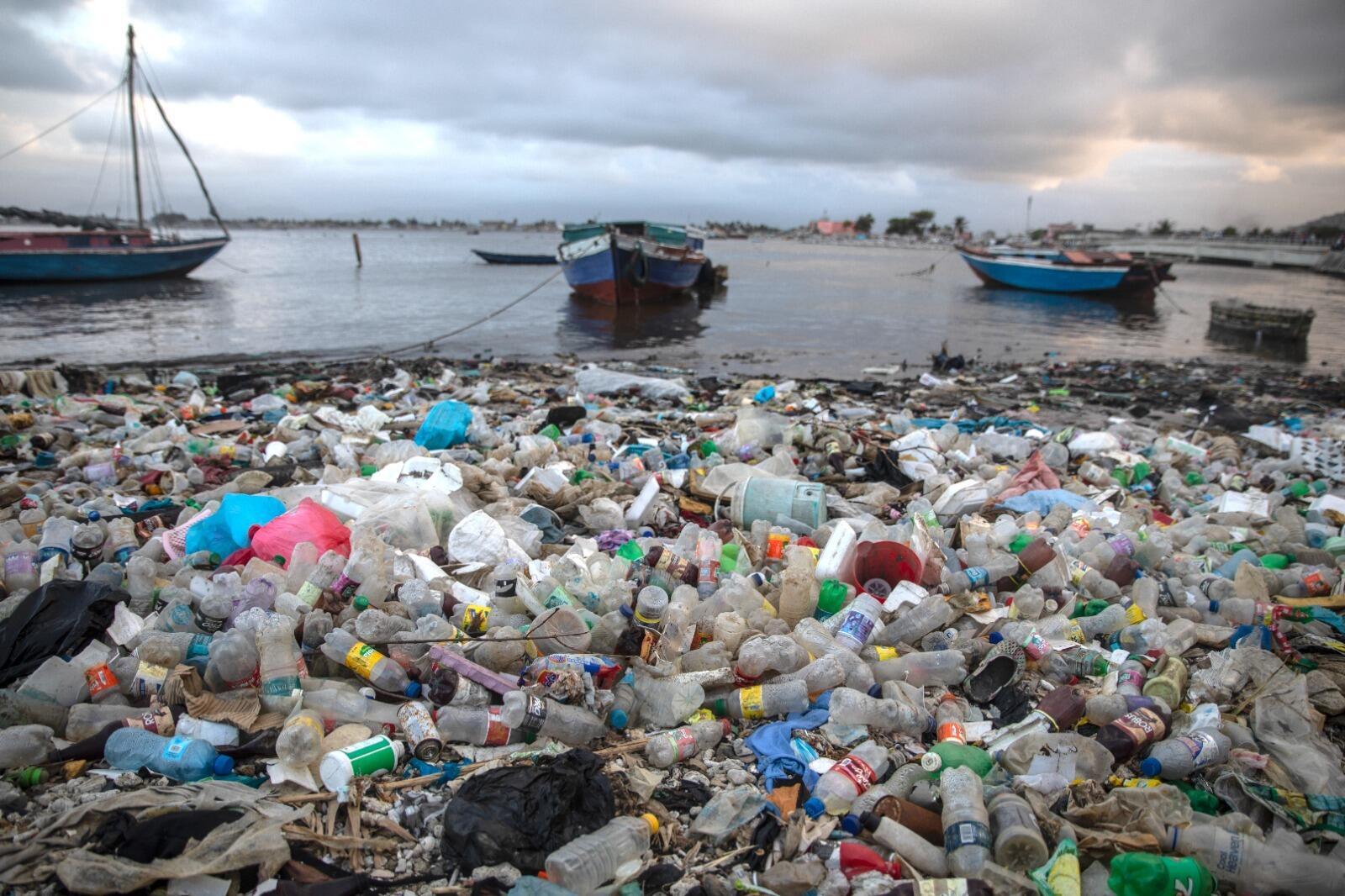For several decades, the natural environment of the Caribbean nation has been under severe pressure. The latest data from the United Nations maintain that each of the 11 million Haitians generates 0.6 kilograms of non-recyclable waste per day, more than 6,000 tons. The critical pollution situation is also aggravated by the devastating effects of climate change and the total absence of policies in pursuit of sustainable development.
“Plastic is ubiquitous in Haiti. And as in many other areas, the State does not regulate its use. A situation that represents a great threat to our environment”, says Duckencia Fleurival de Bourdierd, director of the recycling company Haiplast Recycling SA
This woman usually highlights one of the great evils of the Caribbean nation, often overshadowed by violence, security problems or the absence of state powers to regulate it.
In the streets sometimes it’s hard to tell asphalt from a waste plant. A great variety of waste appears in irrigation canals, abandoned land, streams, as well as on the sea coasts. In almost all places, a common denominator: single-use plastics.
Haiti, the country most impoverished in the American continent, also faces significant challenges in terms of waste management and recycling. An incipient system without logistical support from the competent authorities.
Lack of adequate infrastructure, scarcity of resources, and widespread poverty are some of the obstacles to implementing a functional recycling system. Among other things, many areas of the country lack waste collection facilities, making it difficult to separate and properly process recyclable materials.

Garbage is part of the landscape
According to the United Nations Development Program, the production of solid waste in Haiti is from 0.6 kilograms per person per day. In a population of 11 million people, equivalent to 6,600 tons of waste generated daily throughout the national territory, in turn is comparable with 36 Boeing 747 aircraft (of 183,500 kg each). In parallel, the rate of collection of this waste is only 12%, according to World Bank estimates.
Approximately 5,808 tons of waste accumulate daily in Haiti, especially in large agglomerations, without being collected, stored, valued or destroyed by municipalities, private companies or civil society organizations.
Patrick St-Pré, editor-in-chief of the radio broadcast Haiti Climate
On the other hand, the widespread consumption of products packaged in plastic, the lack of control of imported inputs, of environmental education and the absence of efficient recycling programs are factors that contribute to the increase in pollution by plastics, that are already part of the usual landscape in Haitian urban and rural ecosystems.
“Solid waste management is poorly structured. There are deficiencies that are political, institutional, geographical and economic. The collection difficulties result, on the one hand, from the complexity of the organizational and financial responsibilities and, on the other, from the coordination problems between these actors”, exhorts the journalist Saint-Pré.
Imports, marketing strategies and government absence
In a country highly dependent on imports, where more than 70% of the basic basket products come from outsidemultinationals tend to promote the mass consumption of disposable products in their marketing strategies.

This includes plastic containers, bags, wrappers, and other non-biodegradable materials. “The easy accessibility and low cost of these products make them attractive to Haitian consumers, generating a greater amount of waste that is not always properly managed,” says local environmental journalist Valery Daudier.
Multinationals often operate in developing countries, where environmental legislation and regulations are weak or non-existent: “This allows them to produce and distribute products without taking into account the environmental consequences of their packaging and manufacturing processes. The lack of responsibility and control contributes to the accumulation of garbage in the country”, the journalist from Haiti Climate.
In addition, he adds that about a 35% of plastic waste is specifically soda or juice bottles. Some alarming data and that companies do not fight due to the lack of incentives from the Government, also with the lack of sustainable and ecological development policies.
Sustainable alternatives in the midst of a major challenge
Despite institutional neglect, local initiatives and non-governmental organizations have emerged in the Caribbean nation that work to promote recycling, based on job creation through the collection and processing of recyclable materials.
Also, some local communities and groups have established small-scale recycling schemes, where they manually collect and classify recyclable waste such as plastics, paper, and cardboard for subsequent sale to intermediaries or companies dedicated to these purposes.

Is the case Haiplast Recycling SA, that hires women to be part of the purchase and sale of plastics: “The advantage of recycling is that anyone can join it, without conditions. They come from everywhere. Of all ages, they are women who are single mothers or women who take care of their families. Sometimes they also group together in associations” says the manager of the corporation.
The company works in the same line Dorival RecyclageDirected by Belizaire Morgan Jessy. There they do pedagogy workshops with young people and plastic collection days to transform them into works of art. Chairs, sculptures, baskets or bags are some of the final pieces made of recyclable plastics.
Before, they buy the plastic in low-income neighborhoods and give a second life to that disposable waste. “The problem is the lack of environmental education. People throw garbage on the street, we try to educate through different initiatives, and help those young people who have lost hope,” says Belizaire.
In Haiti, 11 million people live with mountains of garbage that come from consumption and survival in a territory in crisis for more than three decades. Of a continuous present of disorganization and dysfunction of the institutions. In a country without a president, with an almost imperceptible institutional framework and where violence often marks the tempo of life, recycling is almost an act of rebellion.













